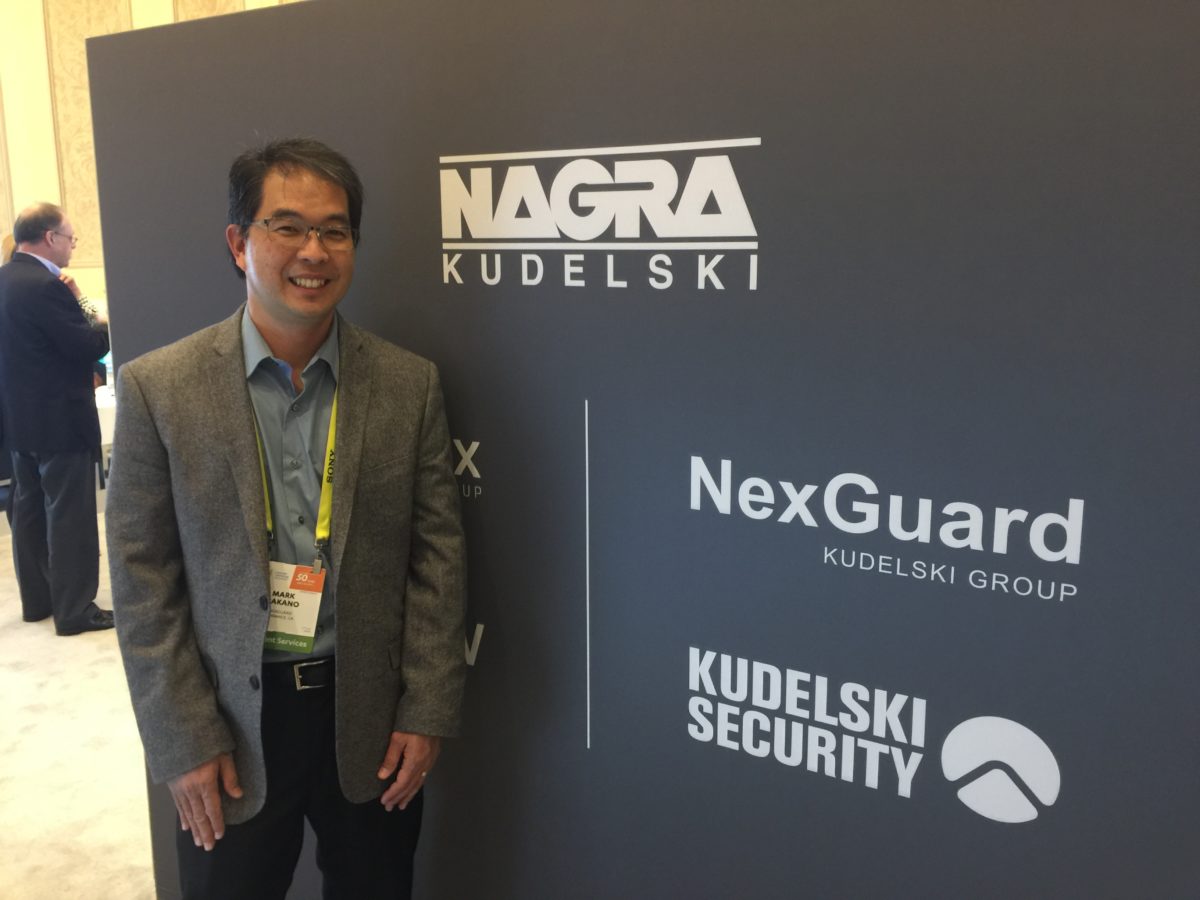Anti-Piracy

CES 2017: NexGuard Looks to the Future of Distribution; Accenture Tackles AI
Story Highlights
LAS VEGAS — Hollywood studios have long toyed with the idea of premium VOD — releasing new theatrical content early in the home — and some like Universal Studios have even experimented with it.
But if you ask Mark Nakano, senior director of product marketing and partnerships for NexGuard, 2017 is the year Hollywood gets serious about the early release of content, and charging a premium for the pleasure.
“We’re seeing that shift toward early release, not only in the U.S., but Canada as well,” Nakano told the Media & Entertainment Services Alliance (MESA) at the Consumer Electronics Show (CES). “And they’re going to need forensic watermarking to do it.”
There are a number of hurdles Hollywood’s big players need to get past to make early release of new content in the home a reality, including the right tech that prevents recording of movies delivered to the living room, and adherence to MovieLabs’ spec for Enhanced Content Protection (ECP), which covers best practices for digital rights management, platforms and the end-to-end systems that will be needed.
It sounds daunting and treacherous, but Nakano sees 2017 as, at minimum, a true proof of concept year for premium VOD, if not an outright debut of the technology to consumers. He predicts a 14- to 17-day window between a theatrical debut and a film’s availability in the home, with theater owners potentially offering so called “super tickets,” where a purchase at the theater is combined with streaming access a couple weeks later.
“There are progressive theater owners out there,” he said. “And I think both the studios and theaters are beginning to trust in the forensic watermarking technology that’s needed to make it happen.”
Meanwhile, also on the security side of things at CES, Accenture’s Charles Hartley, global media and analyst relations manager for communications, media and high-tech businesses, spoke with MESA about the results of the company’s “Dynamic Digital Consumers” survey, which interviewed some 26,000 consumers across 26 countries.
And what the survey found surprised Accenture: while 87% of respondents said they’re concerned about security, especially with online transactions and access to their financial information, nearly 40% said they trust device manufacturers with their security, up from 31% in 2015. In contrast, 36% said they trust telecom providers with their data, down from 42% a year ago, and a mere 13% said they trust search engine providers, a drop from 23% in 2015.
Additionally, on the artificial intelligence front, a full 62% of respondents said they’re comfortable with an artificial intelligence application responding to their search query, and 68% said artificial intelligence is “less biased” than people. Two-thirds said artificial intelligence “communicates more politely” and 56% said artificial intelligence is “less likely to make a mistake.”
“There’s pretty intense interest in AI this year, and a year ago there wasn’t anyone talking about it,” Hartley said. “Consumers aren’t intimidated by it at all, apparently. It’s a sobering message to human beings.”









